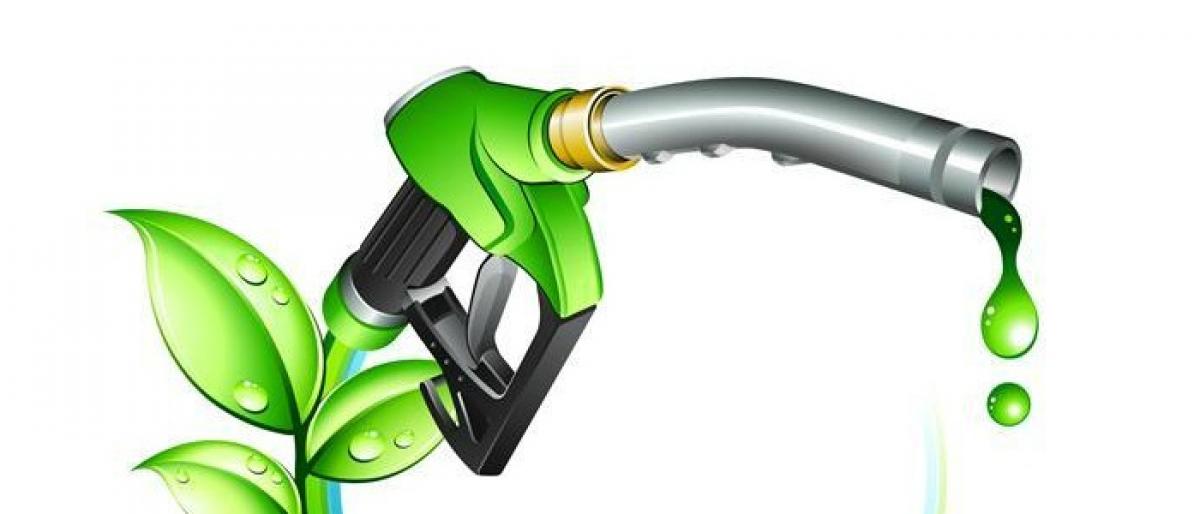Green fuels can spur economy, create jobs

Rajasthan is the first state in the country to move ahead with production and use of biofuels on a major scale, implementing the national policy on the same The policy is expected to bring in a bouquet of benefits After Jatropha disappointed, the focus is now on bamboo and waste to produce biofuels Rajasthan has become the first state in the country to implement the national policy on biofuels
Rajasthan is the first state in the country to move ahead with production and use of biofuels on a major scale, implementing the national policy on the same. The policy is expected to bring in a bouquet of benefits. After Jatropha disappointed, the focus is now on bamboo and waste to produce biofuels. Rajasthan has become the first state in the country to implement the national policy on biofuels unveiled by the Centre in May this year.
The desert State is planning to lay emphasis on increasing production of oilseeds and establish a Centre of Excellence in Udaipur to promote research in the fields of alternative fuels and energy resources. The biodiesel plant with a capacity of 8 tonnes a day has already been installed with financial assistance from the Railways.
Why should other States, too, follow suit? One crore litres of E10 (petrol blended with ethanol) saves Rs 28 crore of forex at current rates. The ethanol supply year 2017-18 will see a supply of around 150 crore litres of ethanol which will result in an estimated savings of over Rs 4,000 crore of forex.
The reason for laying emphasis on biofuels is simply because one crore litres of E10 saves around 20,000 tonnes of CO2 emissions. The country could breathe easier if crop burning is reduced by conversion of agricultural residues and waste is converted into biofuels which could reduce the Green House Gas emissions. Not many households know that prolonged reuse of cooking oil for preparing food is hazardous to health but the same could be an excellent material for biodiesel.
Coming to the municipal solid waste, it amounts to 62 million tonnes in the country per annum. This also could be used for biofuels. In respect of jobs, this is a potential game-changer. Each 100 klpd 2G bio refinery can contribute 1,200 jobs in plant operations, village-level entrepreneurship and supply chain management. The impact shall be on the incomes, too.
By adopting 2G biofuel technologies, agricultural residues and wastes which otherwise are burnt by the farmers can be converted into ethanol and can fetch a price for these wastes if a market is developed for the same. Also, farmers are at risk of not getting appropriate price for their produce during surplus production. Thus, conversion of surplus grains and agricultural biomass can help in price stabilisation, too.
The biofuel story so far has been underwhelming in the country, despite good efforts initiated by the Government in the last 15 years or so. The National Biodiesel Mission formed by the Planning Commission in 2003 proposed a two-phase strategy for biodiesel production from jatropha seeds to achieve a 10 per cent blending mandate with diesel by 2012.
Despite underachieving these blending targets, in 2009, the National Biofuels Policy set another ambitious target of 20 per cent blending for both ethanol and biodiesel by 2017. The primary cause for the failure is the lack of an efficient and reliable supply chain. We must look not only at food production, but also at fuel production. Otherwise future will be bleak.














